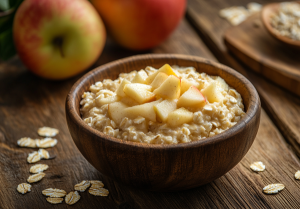Be good to your heart …

By Elean Gersack
It’s February and that means it is national heart month … not the red commercial Valentine’s hearts, but your heart. We should be good to our hearts throughout the year, but this month marks a time to give it some extra love and make a commitment to improve heart health. Taking simple steps can help care for your heart:
Eat Right
Make a plan to better your food intake. Pick fresh and healthy over fried and fatty. Remember, we are what we eat.
Get Busy
Start a new workout class, join a team, or simply get walking. Small changes can really add up. Do something with a friend to make it more fun.
Watch the Extra Pounds
Use a healthy diet and exercise to keep weight in check. Added pounds can be taxing to the heart. Seek the advice of a health care provider for a personal weight loss regime.
Reduce Stress
Breathe. Keep positive and make de-stressing a priority. Spend time with people who make you feel your best and take a few minutes each day to relax and unwind.
Celebrate, Appreciate and Give
Celebrate each day. Make a difference in your life and in the lives of others. Consider volunteering. It feels good to give.
Know the Signs
Know the signs of a heart attack or a stroke. According to the American Heart Association, heart attack symptoms can include uncomfortable pressure, squeezing, fullness or pain in the center of the chest that lasts more than a few minutes, or goes away and comes back; pain or discomfort in one or both arms, the back, neck, jaw or stomach; shortness of breath, with or without chest discomfort; and breaking out in a cold sweat, nausea or lightheadedness. The most common symptom in men and women is chest pain or discomfort. But women are more likely to experience other symptoms like shortness of breath, nausea/vomiting and back or jaw pain.
Stroke symptoms include face drooping, arm weakness and speech difficulty. Call 911 and get help immediately for heart attack and stroke symptoms.
Did you know … heart disease kills more women than all cancers combined? Wear Red on National Wear Red Day on Friday, February 6, to show your support.
Learn more about heart disease at American Heart Association, www.heart.org.
Start your morning off right with this Overnight Steel Cut Oats recipe from the Cleveland Clinic. Find this recipe and many more heart healthy recipes at my.clevelandclinic.org/services/heart/prevention/nutrition/heart-healthy-recipe-corner.
Overnight Steel Cut Oats (Recipe courtesy of the Cleveland Clinic)
Steel cut oats are a favorite fiber-rich, filling breakfast food to start off the day. Letting your slow cooker do the work overnight will save precious morning time and will awaken you to a kitchen filled with aromas. Use of slow cooker liners can make clean-up a snap.
Ingredients:
• 1 cup steel cut oats
• 2 apples cut in small cubes (or 1 cup dried fruit + extra 1/2 cup water)
• 1⁄2 cup chopped walnuts
• 4 cups water
• 2 tsp. ground cinnamon
• 1/2 tsp. pure vanilla extract
• Optional: 1/3 tsp ground cloves
Directions:
Combine all ingredients in slow cooker, mix so ingredients are evenly distributed. Set slow cooker on low setting, cover, and cook for 8-9 hours. Spoon into bowls. Serve topped with a splash of milk (or milk alternative).